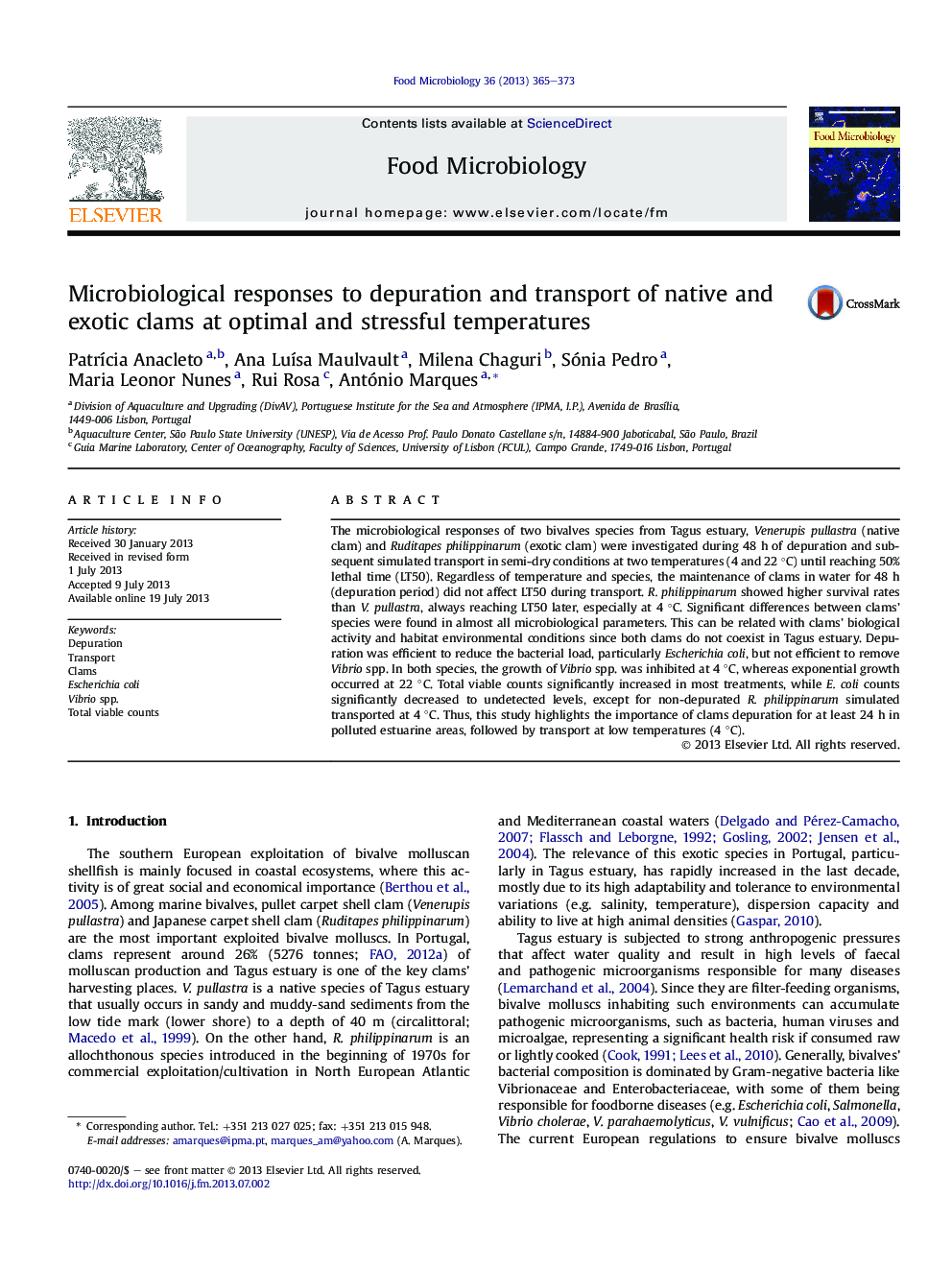| کد مقاله | کد نشریه | سال انتشار | مقاله انگلیسی | نسخه تمام متن |
|---|---|---|---|---|
| 6288791 | 1301526 | 2013 | 9 صفحه PDF | دانلود رایگان |
عنوان انگلیسی مقاله ISI
Microbiological responses to depuration and transport of native and exotic clams at optimal and stressful temperatures
ترجمه فارسی عنوان
پاسخ های میکروبیولوژیکی به پاک کردن و حمل و نقل از جوندگان بومی و عجیب و غریب در دمای مطلوب و تنش
دانلود مقاله + سفارش ترجمه
دانلود مقاله ISI انگلیسی
رایگان برای ایرانیان
کلمات کلیدی
موضوعات مرتبط
علوم زیستی و بیوفناوری
علوم کشاورزی و بیولوژیک
دانش تغذیه
چکیده انگلیسی
The microbiological responses of two bivalves species from Tagus estuary, Venerupis pullastra (native clam) and Ruditapes philippinarum (exotic clam) were investigated during 48 h of depuration and subsequent simulated transport in semi-dry conditions at two temperatures (4 and 22 °C) until reaching 50% lethal time (LT50). Regardless of temperature and species, the maintenance of clams in water for 48 h (depuration period) did not affect LT50 during transport. R. philippinarum showed higher survival rates than V. pullastra, always reaching LT50 later, especially at 4 °C. Significant differences between clams' species were found in almost all microbiological parameters. This can be related with clams' biological activity and habitat environmental conditions since both clams do not coexist in Tagus estuary. Depuration was efficient to reduce the bacterial load, particularly Escherichia coli, but not efficient to remove Vibrio spp. In both species, the growth of Vibrio spp. was inhibited at 4 °C, whereas exponential growth occurred at 22 °C. Total viable counts significantly increased in most treatments, while E. coli counts significantly decreased to undetected levels, except for non-depurated R. philippinarum simulated transported at 4 °C. Thus, this study highlights the importance of clams depuration for at least 24 h in polluted estuarine areas, followed by transport at low temperatures (4 °C).
ناشر
Database: Elsevier - ScienceDirect (ساینس دایرکت)
Journal: Food Microbiology - Volume 36, Issue 2, December 2013, Pages 365-373
Journal: Food Microbiology - Volume 36, Issue 2, December 2013, Pages 365-373
نویسندگان
PatrÃcia Anacleto, Ana LuÃsa Maulvault, Milena Chaguri, Sónia Pedro, Maria Leonor Nunes, Rui Rosa, António Marques,
